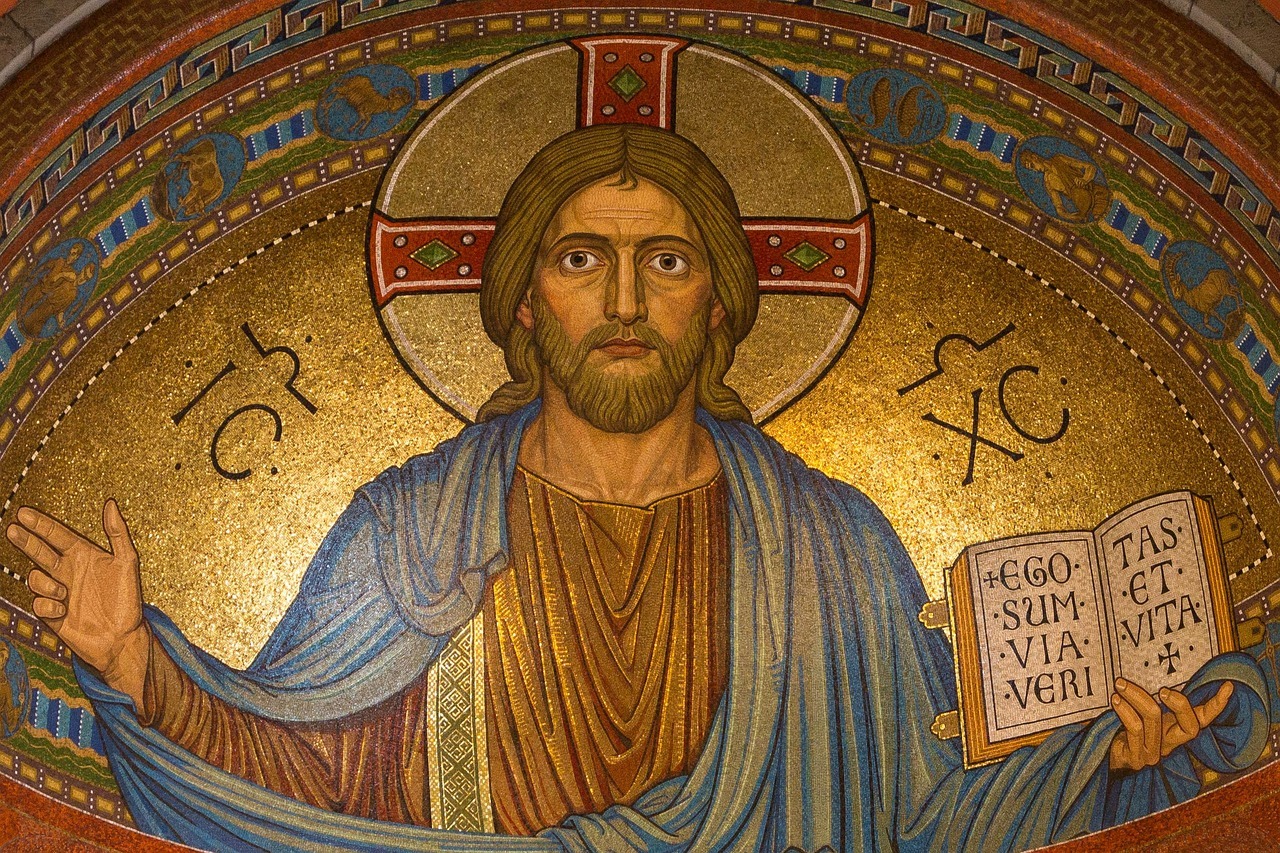2 Samuel 5:1-3 (RM) or Jeremiah 23:1-6 (RCL); Psalm 122 (RM) or 46 (RCL); Colossians 1: 12-20 (RM) or 11-20 (RCL); Luke 23:35-43 (RM) or 33-43 (RCL.)
Kings seem to be back in vogue. Canada now has one (as does the rest of the Commonwealth of course.)
But we’re not going to talk about kings this week (I can already hear a sigh of relief from many readers.) Instead we’re going to take a breathtaking flight into the second reading from Colossians.
This text excerpt doesn’t fit very smoothly with the rest of this letter, a letter most likely not written by Paul but by one of his associates – there are marked differences in the theology and the writing style. The section in Col 1:12-20 was a separate earlier liturgical text, probably a hymn that the writer sort-of parachuted into the opening of this letter. Philippians 2:6-11 was much the same. The Colossians excerpt would have been based on a pre-existing, perhaps well-known, worship text that combined Greek influence with Jewish wisdom traditions punctuated with a few editorial tweaks related to the early church.
Look at the cosmic claims the passage makes for this crucified and risen prophet from Nazareth, this Christ, starting with “the image of the invisible God, the firstborn of all creation.” You might hear echoes of the beginning of the Gospel of John here, “In the beginning was the Word” and you might also remember that Wisdom Christology – Christ as Wisdom – came before Logos or Word Christology. Seeing Christ as the wisdom of God, present from the primordial beginning, through whom all was created, in whom everything coheres together – none of this would have been strange to Jews familiar with the feminine figure of Wisdom in the book of Proverbs. She was a full partner with the Holy One, an agent of creation in herself, even creating all the celestial powers as the prophets interpreted them. Nor would this have seemed strange to early Christians who were on board with Paul who spoke of human persons as the image of Christ, and Christ as the image of God. How amazingly affirming of the holiness of creation, and the holiness of human persons who co-create in their own modest sphere of influence. Original blessing indeed.
But alas, an intrusive editor altered the idea of Christ as head of the cosmic body to Christ as head of the church. Once you do that, you’ve shifted the operative idea of “power” from strength to domination.
But there’s more richness to come. “In him all the fullness was pleased to dwell, and through him all things were reconciled” – how many threads can we draw out from this vision to give energy to working for the health and sustainability of the environment, and for making peace with justice among warring national and ideological “powers.”
At the end of our passage, “making peace through the blood of his cross” can feel like a heavy thump as the glorious flight of divine cosmic wisdom hits the ground. This phrase too was a later editor’s addition.
Anglican commentator Reginald Fuller writes, “It was a bold step when the Greek speaking Christians identified Jesus of Nazareth as the incarnation of the heavenly wisdom, and claimed for him all the theology of wisdom which had been worked out in Hellenistic Judaism. … [This] enabled them to oppose the Gnosticism which denied the salviability [sic] of creation and interpreted redemption to mean redemption from creation.” Look at that! The material world is not evil by nature, and neither are our human bodies. All things are reconciled in the cosmic, the incarnate, Christ.
Never be afraid to take bold steps.
© Susan K. Roll
Susan Roll retired from the Faculty of Theology at Saint Paul University, Ottawa, in 2018, where she served as Director of the Sophia Research Centre. Her research and publications are centred in the fields of liturgy, sacraments, and feminist theology. She holds a Ph.D. from the Catholic University of Leuven (Louvain), Belgium, and has been involved with international academic societies in liturgy and theology, as well as university chaplaincy, Indigenous ministry and church reform projects.





Thanks for the reminder that Wisdom Christology – Christ as Wisdom – came before Logos or Word Christology. Seeing Christ as the wisdom of God, present and active in all creation, opens wonderful paths of insight and experience.